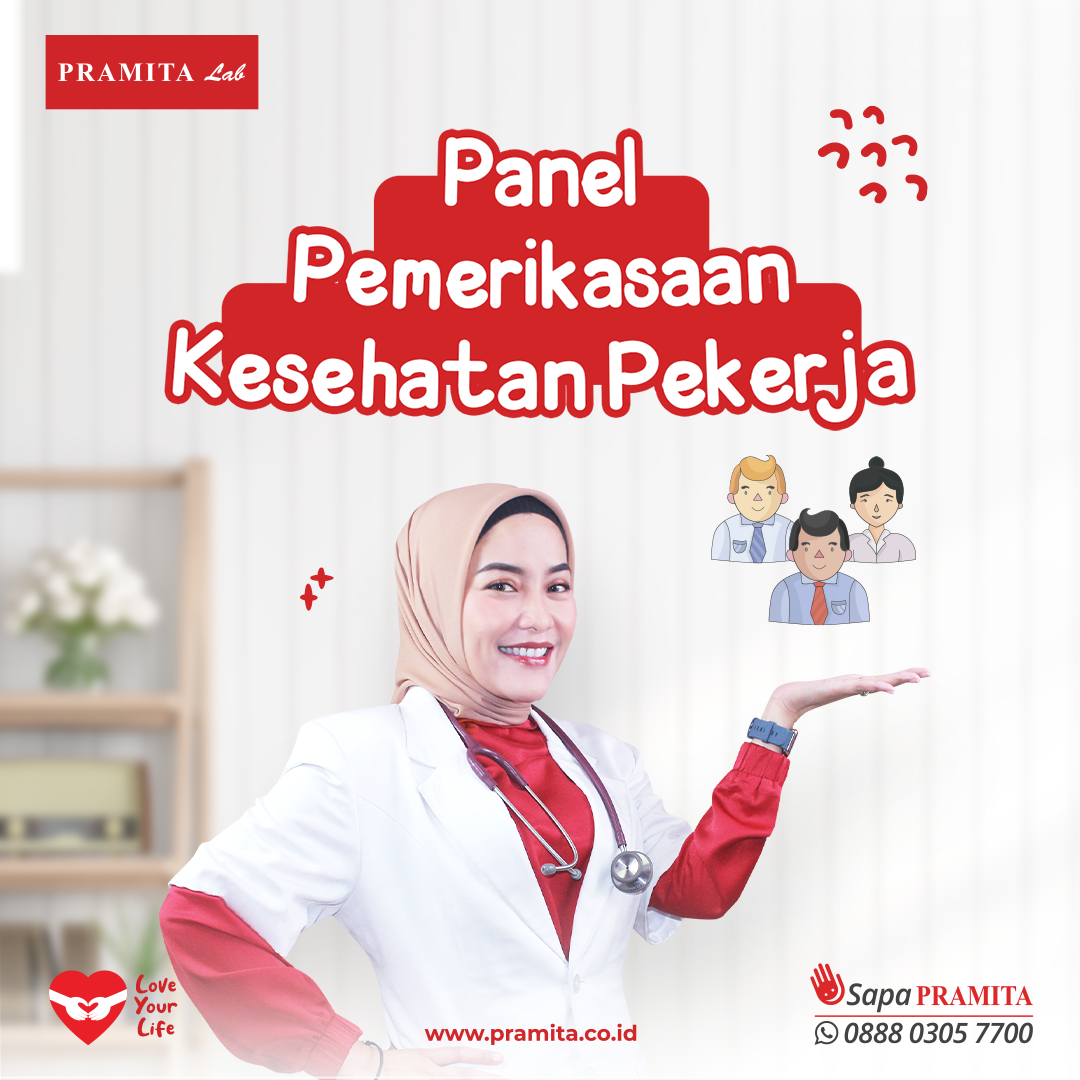Healthy Inspirations

Employee Health Examination Panel
Tue, 11 Jul 2023Employee Health Examinations are generally divided into 3 (three) categories:
1. Pre-employment health examination
Pre-employment health examination is necessary to ensure that the recruited employees are in a healthy condition, free from contagious diseases that can be transmitted to other workers, and suitable for the job they will perform, ensuring the safety and health of the employees and others.
2. Periodic health examination
Periodic health examination is a regular health examination conducted by the company doctor at specific intervals for the employees. The purpose of periodic health examinations is to maintain the employees' health status during their employment, as well as to detect any early effects of the job that need to be controlled through preventive measures.
3. Special health examination
Special health examination is a specific health examination conducted by the company doctor for certain employees. The purpose of special health examinations is to assess the effects of specific jobs on employees or specific groups of employees.
Every prospective employee or employee undergoing health examination is required to fill out a questionnaire, informed consent form, and undergo a comprehensive general health examination.
Types of employee health examinations include:
a) Administrative information (name, address, date of birth, institution identification, department/section)
b) Medical information (interview by the doctor)
• Current medical complaints
• Past medical history
• Occupational history
• Family medical history
• Allergies
• Current medication use
• Immunization history (type, date of administration, boosters)
• Lifestyle behaviors (smoking, alcohol consumption, physical activity and exercise, dietary patterns)
c) Clinical examination (physical examination by the doctor)
• Anthropometry: height and weight (body mass index), body circumference
• Vital signs: blood pressure, pulse rate, respiratory rate, temperature
• Visual acuity, color blindness
• Dental and oral examination
• Examination of the head, ears, nose, throat, chest, abdomen, extremities, and skin
• Rectal examination
• Balance examination
d) Supporting examinations
• Complete blood count (hemoglobin, red blood cell count, white blood cell count, blood type, platelet count, erythrocyte sedimentation rate)
• Complete urine analysis (protein, glucose, blood, sediment)
• Metabolic/serum chemistry screening
• Lipid profile (cholesterol, triglycerides, HDL, LDL)
• Fasting glucose and 2-hour postprandial glucose
• Kidney function (blood urea nitrogen, creatinine, estimated glomerular filtration rate, uric acid)
• Liver function (aspartate transaminase, alanine transaminase, gamma-glutamyl transferase, alkaline phosphatase)
• Infection screening
• Hepatitis A (Anti-HAV, Anti-HAV IgM), Hepatitis B (HBsAg, Anti-HBs), Hepatitis C (Anti-HCV)
• HIV antibody test
• Syphilis (VDRL, TPHA)
• Salmonella (Tubex/IgM anti-Salmonella, Widal test)
• Tuberculosis (acid-fast bacilli, interferon-gamma release assay)
• Chest X-ray/PA view
• ECG/EKG
e) Additional specific supporting examinations based on job risks:
• Treadmill test (exercise stress test; for employees aged >40 or >50 years with risk factors)
• Spirometry (lung function assessment; for employees exposed to pollutants/inhalants)
• Audiometry (for employees exposed to noise)
• Rectal swab/stool preparation/stool culture (vibrio cholera, shigella, salmonella, E. coli) (for food handlers)
• Hepatitis B and HIV screening (for healthcare workers, etc.)
Reference:
Bina Okupasi Indonesia. HIPERKES and KK (K3) Training Module for Company Doctors. Jakarta: Ministry of Manpower, Republic of Indonesia.
Author: Dr. Ninda Ariesta (Medical Consultant at PRAMITA Clinical Laboratory, Jl. Sultan Agung No. 67, Yogyakarta)

